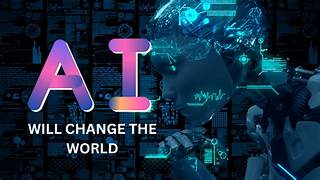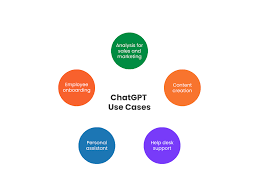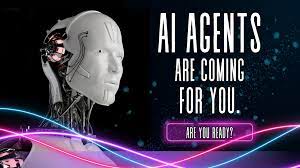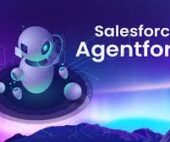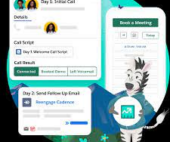Get a Grip on Agentforce
Salesforce Agentforce: The Next Evolution in AI Automation Salesforce is a powerhouse for sales, customer support, and marketing. While automations and integrations already help streamline workflows, Salesforce Agentforce takes efficiency to a whole new level. This guide breaks down what Agentforce is, how it works, and five impactful ways to use it in your organization. What is Salesforce Agentforce? Agentforce is Salesforce’s AI-driven automation tool that enables businesses to deploy autonomous AI agents for tasks like managing customer requests, scheduling meetings, and optimizing sales pipelines. Unlike basic chatbots, these AI agents operate independently—analyzing data, making decisions, and executing actions without constant user input. How AI Agents Work Traditional AI tools like ChatGPT and Jasper assist with tasks when prompted, but AI agents go further. They: With Agentforce, Salesforce users can automate more than ever before—including delegating routine decisions to AI. 5 Ways to Use Salesforce Agentforce 1. Enhancing Customer Support with AI Agents AI agents go beyond standard chatbots by dynamically searching company data in real time to provide personalized support. They can: 2. Automating Routine Support Tasks Many customer requests are too complex for basic automation but still repetitive for human agents. AI agents can independently process requests like: ✔ Updating reservations (restaurants, hotels, events)✔ Redeeming loyalty points (e-commerce, retail)✔ Processing refunds (subscriptions, software)✔ Rescheduling appointments (professional services, healthcare) 3. Delivering Smarter, Data-Driven Sales Engagement AI agents can identify opportunities for engagement based on real-time customer data. Instead of waiting for reps to manually review accounts, AI agents can: 4. Launching Workflows Directly from Chat Apps Sales and project teams often brainstorm in chat apps like Slack. Instead of manually transferring ideas into Salesforce, Agentforce can: 5. Scaling Sales Training with AI Sales training is essential but resource-intensive. AI agents can roleplay as prospects, allowing reps to: Take Your AI Automation to the Next Level With Salesforce Agentforce, businesses can go beyond basic automation and deploy intelligent AI agents that handle repetitive tasks, optimize workflows, and drive better customer experiences. FAQ: Salesforce Agentforce What makes Agentforce different from regular automation?Unlike traditional automation, Agentforce AI agents can act independently—analyzing data, making decisions, and executing workflows without human intervention. Is Agentforce the same as Microsoft Copilot?No. While both use AI, Agentforce deploys autonomous AI agents that complete tasks, while Copilot assists users in real time with insights and recommendations. Who should use Agentforce?Salesforce admins, sales teams, and customer support leaders who want to automate complex workflows and free up their teams for high-value tasks. Looking to supercharge your Salesforce automation? Start with Agentforce today. Like1 Related Posts Salesforce OEM AppExchange Expanding its reach beyond CRM, Salesforce.com has launched a new service called AppExchange OEM Edition, aimed at non-CRM service providers. Read more The Salesforce Story In Marc Benioff’s own words How did salesforce.com grow from a start up in a rented apartment into the world’s Read more Salesforce Jigsaw Salesforce.com, a prominent figure in cloud computing, has finalized a deal to acquire Jigsaw, a wiki-style business contact database, for Read more Service Cloud with AI-Driven Intelligence Salesforce Enhances Service Cloud with AI-Driven Intelligence Engine Data science and analytics are rapidly becoming standard features in enterprise applications, Read more


